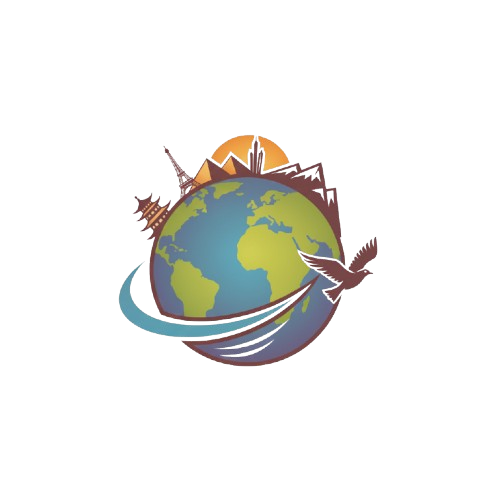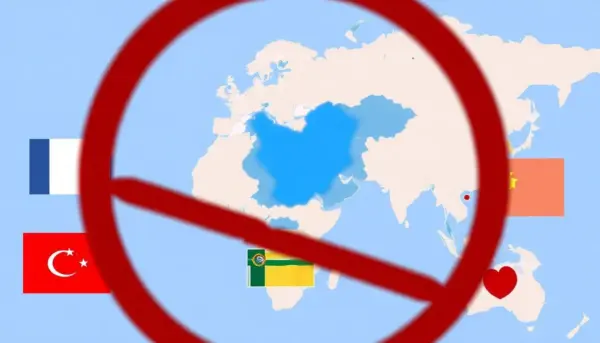In today's interconnected world, the digital landscape is a vital part of our daily lives, where social media acts as a bridge for communication, information sharing, and community building. However, it is alarming to realize that some countries have resorted to banning these platforms entirely. This drastic action raises significant questions about digital freedom, human rights, and the intricate relationship between state power and the virtual realm. As a traveler, your primary concern may be how to navigate these restrictions and stay connected. In this article, we will explore which countries limit access to social media and suggest practical solutions to bypass these blocks and share your experiences online.
Understanding social media as a human right
In the digital age, access to social media has emerged as a cornerstone of modern life. It plays an essential role in connecting individuals, fostering communication, and facilitating the exchange of ideas. Advocates argue that access to social media should be recognized as a human right, akin to freedom of expression.
These platforms serve as vital spaces for civic engagement, activism, and the formation of global communities. Thus, the prohibition of social media in certain countries raises fundamental questions about the boundaries of digital freedom and individual rights in an increasingly technological world.
What is censorship?
Censorship, a practice prevalent throughout history, manifests in various forms today, particularly in the realm of social media control. It involves the restriction, suppression, or manipulation of information aimed at shaping public opinion or maintaining authority.
In the context of social media, censorship may occur through the blocking of entire platforms or the restriction of specific content. This practice poses ethical and political dilemmas regarding freedom of expression and transparency, highlighting the tension between national security and individual rights.
Countries that block social media
Globally, numerous countries have opted to block access to social media, justifying their actions in the name of security, public order, or cultural preservation. Ranging from authoritarian regimes to evolving democracies, the number of nations implementing these restrictions continues to rise.
Some bans are temporary, while others persist for extended periods, sparking heated debates about democracy and civic participation in a world that is becoming more interconnected. A pressing question remains: is the prohibition of social media a justified response or a violation of fundamental rights?
Consider the following countries that, in one way or another, block or limit access to social media. If you plan to visit any of these places soon, keep this in mind to avoid an unpleasant surprise!
- China: Known for its "Great Firewall," China blocks Western social media platforms and prohibits the use of VPNs. During the Xinjiang riots, major platforms were shut down, and the country has its own state-controlled social media platform, Weibo.
- Iran: Following the 2009 elections, Iran increased its censorship, employing "smart filtering" to block unwanted content. Although some bans have been lifted, proposed legislation suggests further restrictions on internet access.
- Vietnam: Known for its strict control dubbed the "Bamboo Firewall," Vietnam occasionally blocks social media and streaming services. In 2021, a code of conduct was introduced for social media, prohibiting content deemed harmful to "state interests."
- Bielorrusia: Since 2006, Bielorrusia has enacted strict internet control, including regulations for cyber cafes and websites. It partially blocks internet access during events like re-elections and has been labeled an "enemy of the internet."
- North Korea: Internet access is severely restricted and controlled, with stringent limitations on social media and international websites.
What solutions do we have?
Instead of resorting to protests in Tiananmen Square or attempting to disrupt cruise ships in Halong Bay, we should explore technological solutions available to us. One such option is the use of a VPN, particularly in countries where, despite the "capping" of social media, the use of these programs is permitted.
What is a VPN?
A Virtual Private Network (VPN) is a tool that allows you to create a secure connection over a network, encrypting your data and concealing your actual location and IP address. Its primary function is to protect your privacy while browsing, but it also enables access to geographically restricted content by altering your virtual location, effectively "masking" your real identity.
This way, you can circumvent the censorship imposed by these countries. Beyond merely accessing social media, you will also gain the freedom to explore online information without governmental restrictions.
The future of social media in these countries presents significant challenges. Will these bans persist long-term, or will they eventually yield to the increasing pressure from citizens and the international community? This question remains open-ended, but one certainty is that the debate regarding the relationship between state power and the digital sphere will continue to evolve as society advances into the digital age.
For more insights on countries that have restricted social media access, check out this informative video:
Countries with less internet censorship
While many nations impose strict regulations on social media, others strive to promote a more open and free internet environment. Countries like Estonia and Sweden exemplify how a commitment to digital freedom can benefit society.
- Estonia
- Sweden
- Finland
: Renowned for its digital society, Estonia offers free internet access to its citizens and has embraced e-governance, allowing for a transparent and participatory political process.
: With a long-standing commitment to freedom of expression, Sweden provides a minimal level of censorship, promoting open dialogue and access to information.
: Recognized for its strong emphasis on internet freedom, Finland has classified internet access as a legal right, ensuring that all citizens can access online information without restrictions.
Countries where TikTok is banned
In addition to broader social media restrictions, specific platforms like TikTok have faced scrutiny, leading to bans in various nations. This short video platform has garnered massive popularity, but concerns about data privacy and national security have prompted some governments to take action.
Countries such as India and Afghanistan have implemented bans on TikTok, citing reasons related to security concerns and the promotion of inappropriate content.
Countries where internet access is restricted
Some countries impose severe restrictions on internet access, with many citizens facing significant limitations in their online activities. Nations like North Korea and Iran exemplify extreme cases of internet censorship, where access is tightly controlled and monitored by the government.
- North Korea: Internet access is largely non-existent for the general population, with only a select few elite individuals having limited access to a closed intranet.
- Iran: The government actively filters online content, restricting access to various websites and social media platforms while monitoring citizens' online activities.
- China: Despite having access to a vast digital landscape, the "Great Firewall" restricts numerous foreign websites, including popular social media platforms, denying citizens a truly open internet experience.
| Save on your travels |
| Compare and find cheap flights here |
| Find the best priced accommodation here |
| Book activities and excursions in Spanish here |
| Get a €10 gift when booking transport in Europe here |
| 5% discount on your IATI travel insurance here |
| Book airport transfers here |
| Learn how to withdraw money without fees here |
| 5% discount on your eSIM from Holafly here |
| Rent a car with the best offers here |
| Compare prices on van rentals here |
| The best travel books and guides here |




